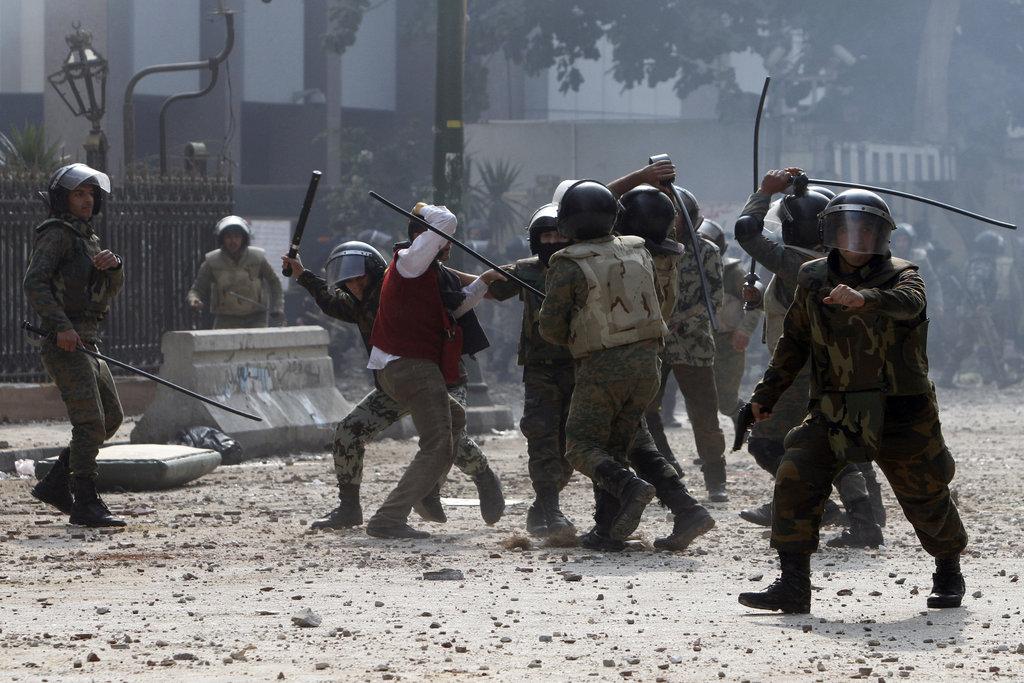In Egypt, democratic advances belied by military violence
Egyptian soldiers beat a protester during clashes near Cairo’s Tahrir Square on December 16, 2011 after demonstrators threw petrol bombs and set fire to furniture in front of the nearby parliament.
CAIRO – The photo of a young woman dragged through the streets by soldiers and then beaten, stripped to her bra and kicked in the chest has become a searing indictment of the Egyptian military.
It is an iconic image for a city careening between record voter turnout and unprecedented brutality by the military. It has enraged Egyptians and been condemned by the international community with Secretary of State Hillary Clinton calling it “shocking” and a "disgrace."
Voter turnout topped 65 percent in the second phase of parliamentary elections held last week, but it has been vastly overshadowed by four days of a military crackdown on protesters in Tahrir Square, which has left 13 protesters dead and hundreds wounded.
The photo of the woman is on the front page of every independent newspaper, and the appalling footage of soldiers swarming and beating her is playing on Arab satellite channels. The headline on the Egyptian newspaper Tahrir was in bold, red block letters and it read: “Liars!”
I’ve been here for the whole week, which feels very much like yet another dramatic turning point in Egypt’s unfinished revolution. I am here to report on the role of the military in a new Egypt, and the timing seems extraordinary.
But I am also here to host a gathering of Egyptian and international journalists where we shared the GlobalPost and Open Hands Initiative (OHI) Special Report titled “Egypt's Unfinished Revolution: From Tahrir Square to the Ballot Box.” It was reported by 17 young Egyptian and American journalists who convened in Cairo in October.
We shared a short film on the fellowship which was supported by OHI, a New York based non-profit dedicated to people-to-people diplomacy around the world.
As part of the gathering, GlobalPost and OHI hosted a panel discussion on how the Egyptian and international media have covered the elections and the spike in violence that has bookended the two phases of a three-phase election for the Lower House of parliament. The Upper House will be voted on next month.
On the panel were NPR’s Soraya Sarhaddi Nelson, Al Jazeera English’s Rawya Rageh, Al Ahram Center for Political and Strategic Studies’ Ziad Akl and the Egyptian journalist and Managing Editor of the GlobalPost Special Report, Mohannad Sabry. The journalists on the panel offered great insights into covering the story and trying to make sense of a something that keeps unfolding in dramatic and unpredictable ways, with spikes of violence on the streets around Tahrir and waves of hope in the long lines at the polling stations.
Akl made a particularly honest observation for a political analyst, saying, “Trying to do what we do, which is make sense of things, has been, well, really difficult.”
Every day, reporters and producers at The World are hard at work bringing you human-centered news from across the globe. But we can’t do it without you. We need your support to ensure we can continue this work for another year.
Make a gift today, and you’ll help us unlock a matching gift of $67,000!
